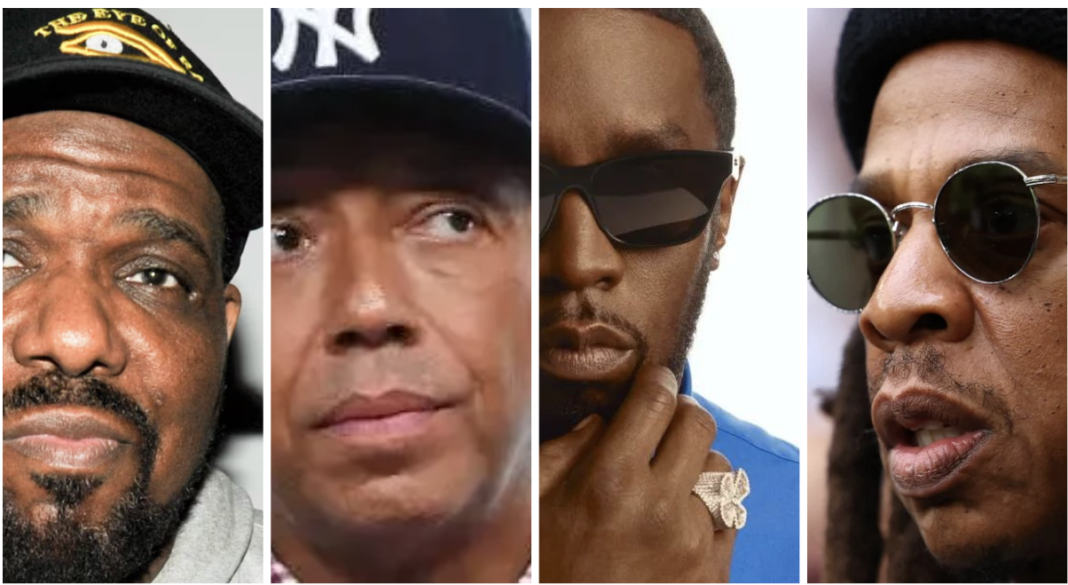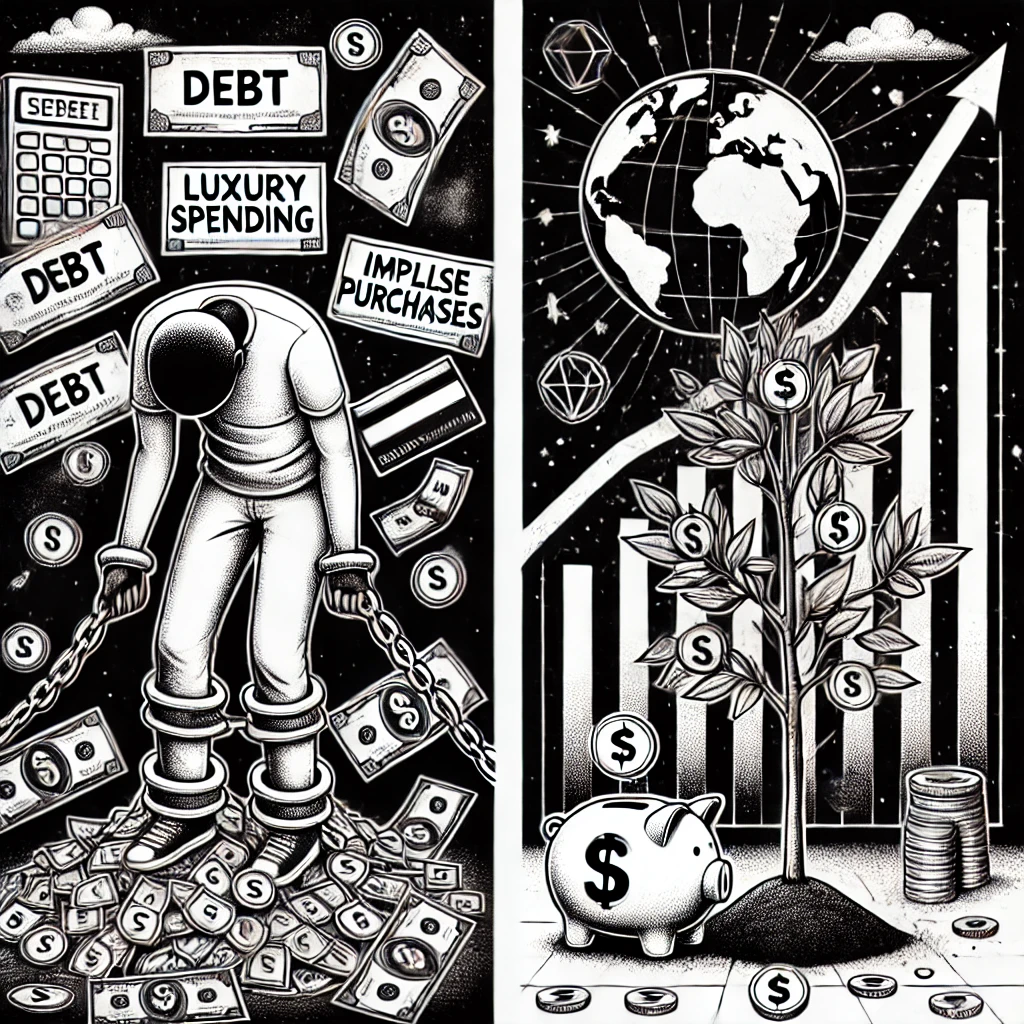When the Culture You Love No Longer Loves You Back
Hip hop was supposed to be the mirror held up to the community—raw, unfiltered, a reflection of truth. We expected rappers to capture the realities of the streets, to give voice to struggles and triumphs. But something has warped. Art isn’t imitating life; it’s perpetuating it. The violence, exploitation, and toxicity aren’t just reflected in the music—they’re reinforced, amplified, and exported back into the culture.
Look at the headlines: P. Diddy, once Puff Daddy, now facing allegations and charges that strip away the glamour to reveal something sinister beneath. Trey Songz, caught in accusations that expose a broken moral compass. And now, without an opportunity to fend off the claims, Jay-Z (still one of my hip hop hero’s) is being dragged into the muck. What the hell happened to us? The rap world is a mess. Right, wrong or indifferent, can’t we BEHAVE? Can hip hop police itself? Apparently not. And let’s not pretend the world has forgotten Chris Brown beating the hell out of Rihanna. Some of you may have moved on, but I haven’t.
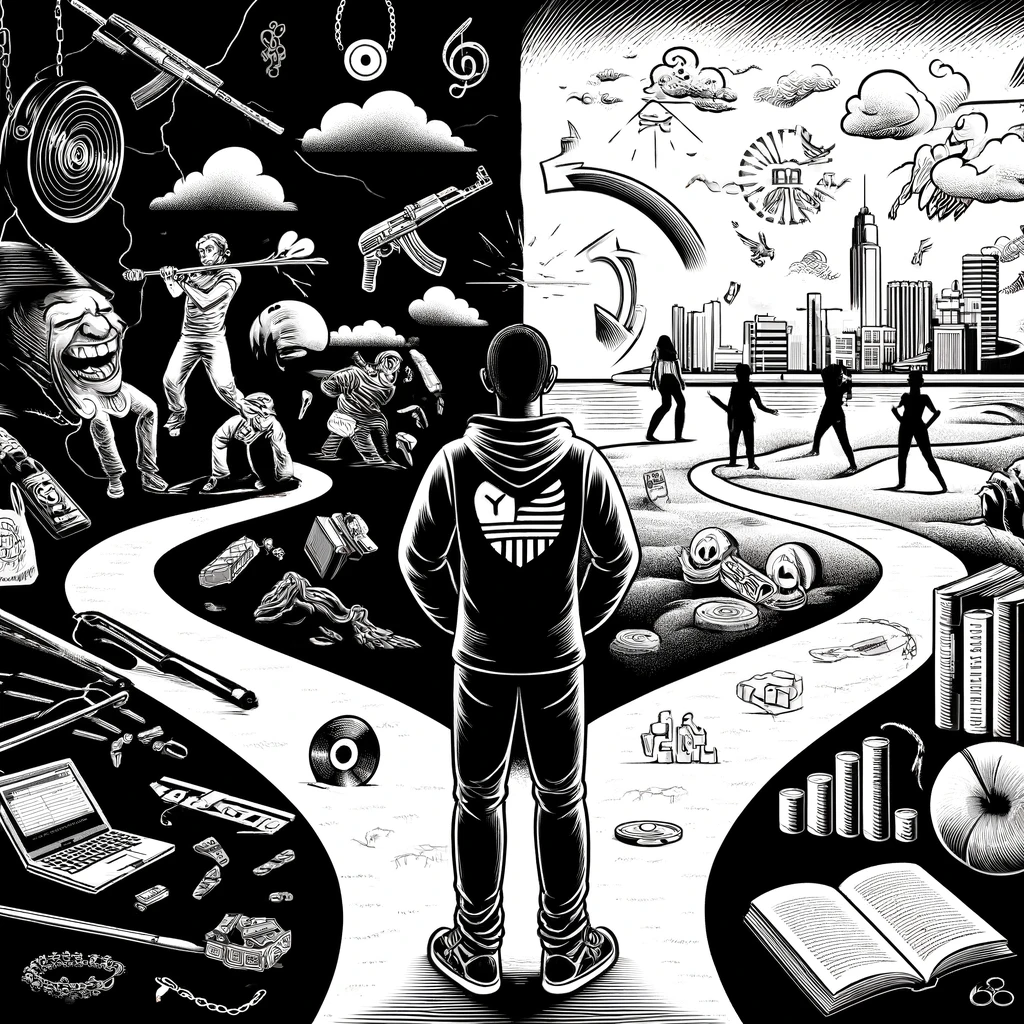
And then there’s Afrika Bambaataa, one of hip hop’s founding fathers, now facing allegations of repeated child sexual abuse and sex trafficking in the 1990s. The lawsuit paints a dark picture of a pioneer who helped shape the genre but allegedly exploited his position of power to harm the very community he was supposed to uplift. This case, more than three years old now, still lingers, unanswered by Bambaataa himself. How do we reconcile this betrayal from someone who once symbolized hip hop’s birth and growth?
These incidents aren’t isolated. They’re symptoms of a culture that has been sick for too long, swallowed whole by its own toxicity. Fans latch onto these trends, craving a connection to hip hop’s “inner circle” no matter the consequences. The bodies keep piling up, the lawsuits keep mounting, and yet the industry shrugs it off with the First Amendment as its shield. But who shields the communities, the youth, the women, the listeners?
The Epidemic of Violence

From Nipsey Hussle to Takeoff, from Young Dolph to Pop Smoke, the grim roll call of rappers slain in violence continues to grow. And now we’re watching powerful figures like P. Diddy and Russell Simmons face allegations that reveal an industry built on rot. The violence isn’t just a tragedy—it’s an epidemic, a systemic plague with no sign of stopping.
When one of the genre’s architects, Afrika Bambaataa, is sued for allegedly sexually abusing and trafficking children, it shakes the foundation of what hip hop was supposed to stand for. We expected better. We deserved better.
The problem? Hip hop romanticizes violence and street justice. It doesn’t just describe the trap; it reinforces it. It glorifies retaliation, weaponry, and vengeance. Fans absorb it. They mimic it. The lines blur between entertainment and endorsement until you’re left wondering: Is this music saving lives, or ending them?
Art doesn’t just reflect reality; it molds it. We can’t keep hiding behind the First Amendment while young people bleed out in the streets. At some point, the culture must ask: Who’s paying the price for all this “freedom”?
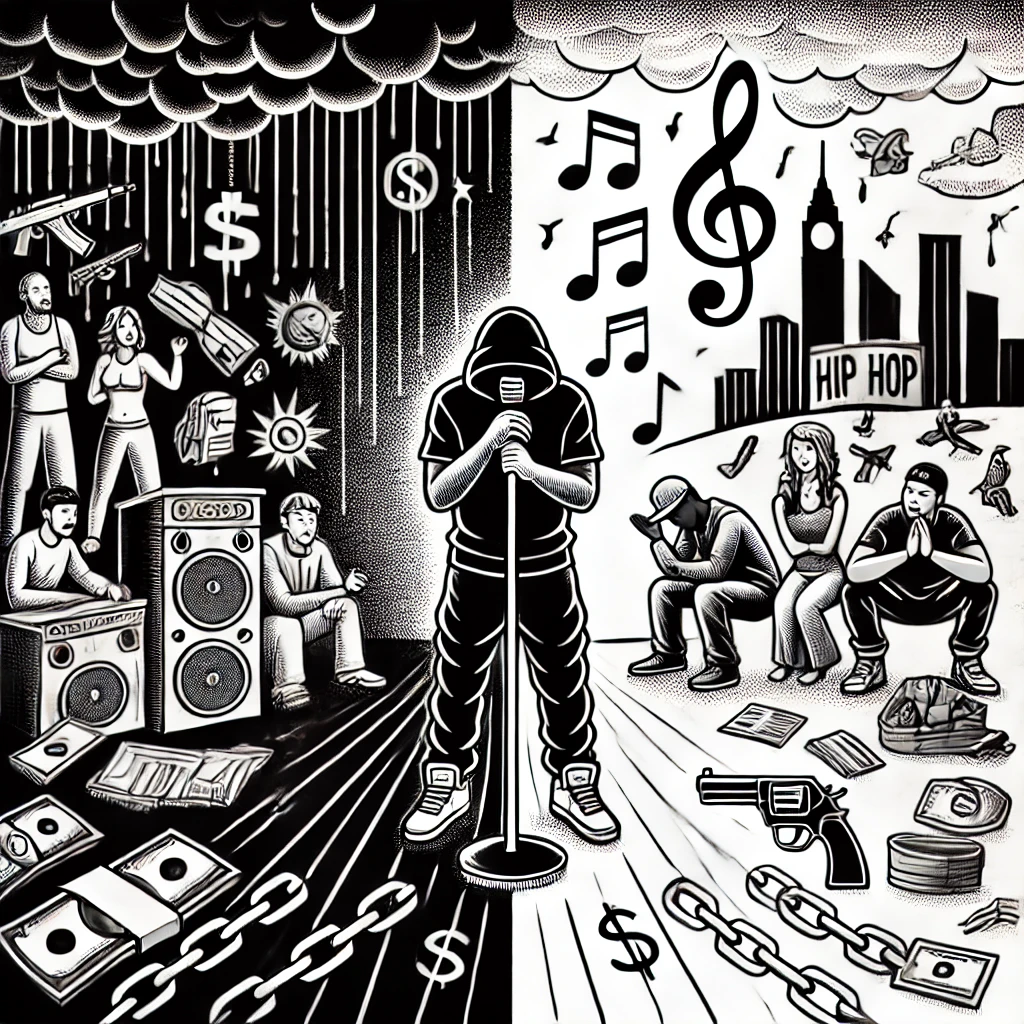
A Culture of Exploitation and Misogyny
Hip hop’s reckoning with misogyny and exploitation is long overdue. From Trey Songz to Chris Brown, from executives to A-listers, the industry is teetering under the weight of rape allegations, trafficking scandals, and unchecked abuse. These aren’t one-off events. They’re symptoms of a culture that has long placed power and profit over ethics.
We glamorize loveless sex, glorify adultery, and reduce women to props. The lyrics, the visuals, the “lifestyle”—they all reinforce a narrative where women are commodities, not human beings. This isn’t edgy anymore. It’s stale. It’s harmful. And it’s exhausting.
When a founding figure like Afrika Bambaataa is accused of violating the very youth he was supposed to mentor, it forces us to question if hip hop’s foundations were laid with rot beneath the surface.
I don’t want to listen to music that weaponizes women’s bodies or normalizes their exploitation. The world has moved on. Why can’t hip hop?
The Failure of Messaging
Hip hop used to be about resilience, empowerment, survival. Public Enemy, KRS-One, early Nas—they gave us blueprints to rise above. But somewhere along the way, the message got corrupted. Now it’s about excess, self-destruction, and empty status symbols.
Financial freedom? Replaced by reckless spending. Community upliftment? Buried under solo ascension at any cost. Mental health? Drowned out by glorified self-medication.
This isn’t censorship. It’s accountability. If hip hop isn’t serving the people anymore, what’s the point? If it’s feeding our worst instincts instead of our better selves, how can we call it “the voice of the people”?
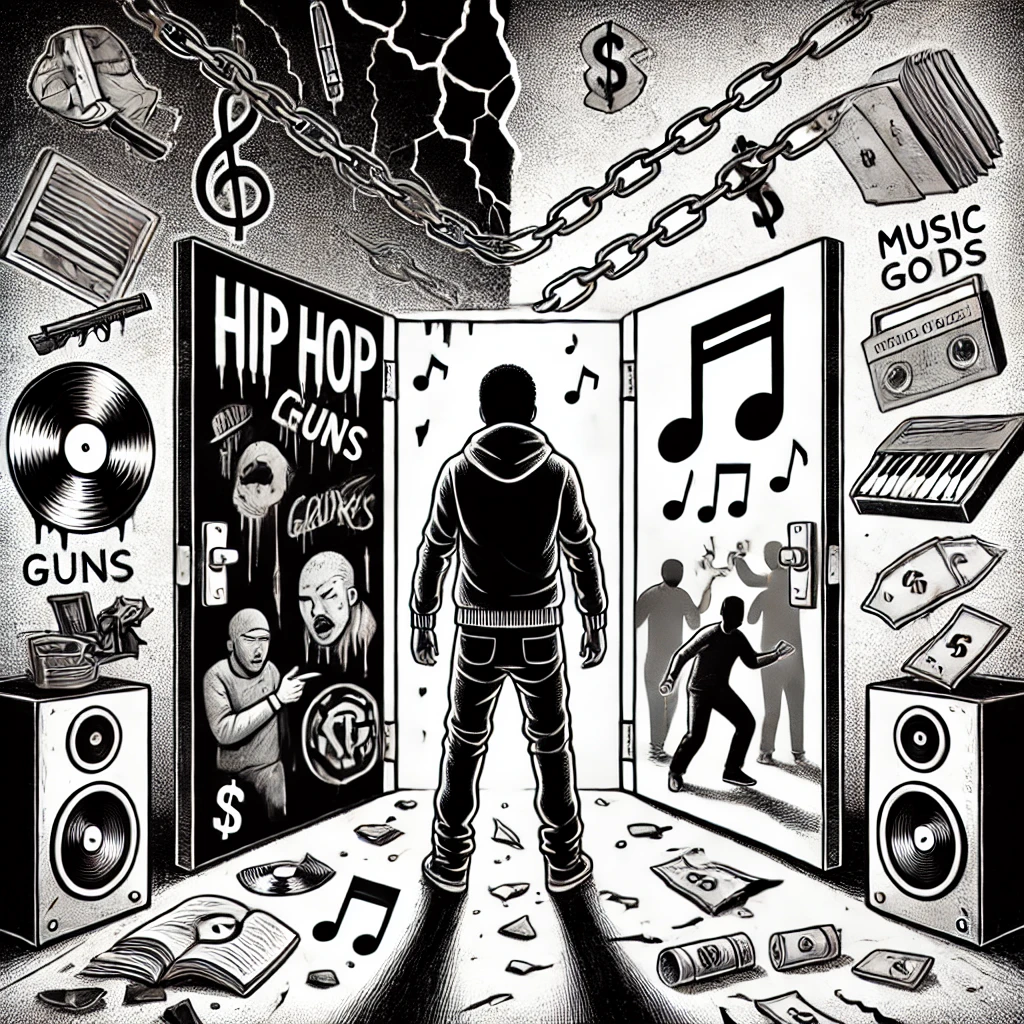
Personal Detox: Cutting the Toxic Ties
I’ve had enough. After this, I’m flipping the script. No more HOT97 when I cut on iHeartRadio—I’m tuning into Sunny Radio. No more fights, police brutality, or car crash videos on my feed. My Relentless U account will be my new focus. My main Instagram? Just for checking messages. I’m done with the toxic noise.
Why should I keep consuming content that poisons my mind? There’s music out there that inspires, uplifts, and doesn’t demand a pound of flesh in return. I’d rather find joy in dance music, in anything that celebrates life instead of destroying it.
Maybe it’s time to step outside the hip hop bubble and serve wider audiences who crave more than just survival narratives. The culture is getting tired, and so am I.
Time to Choose
We’re at a crossroads. Hip hop can either evolve or implode. We can demand better, or we can walk away. The industry needs a rebuild, not a facelift. Real success stories, real financial literacy, real respect—that’s the hip hop worth saving.
If the culture refuses to change, then maybe it’s time to let go. I won’t let a toxic relationship define me. What about you?



